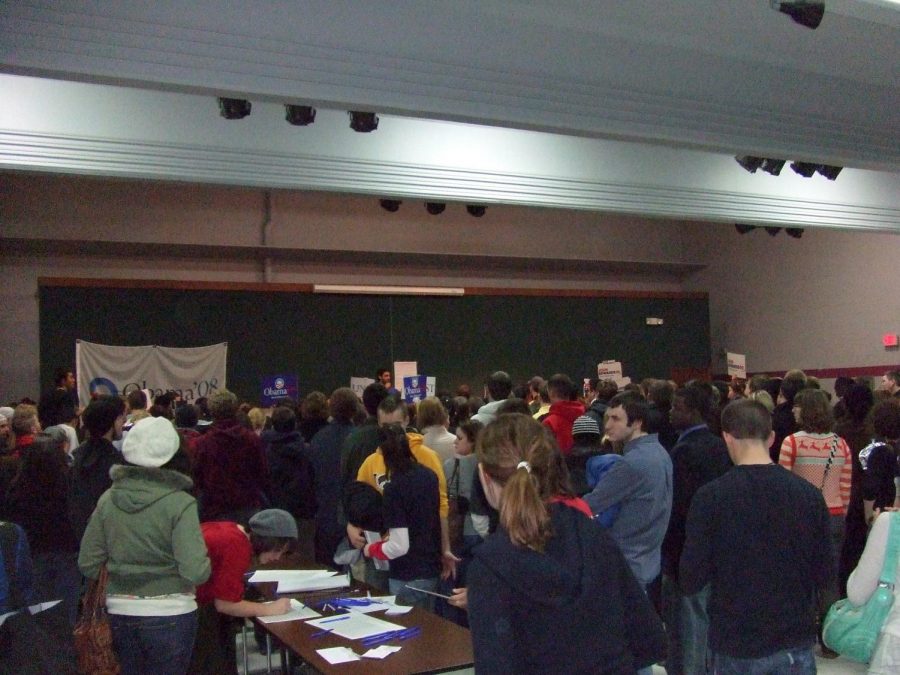Iowa Caucuses have failed
Citizensharp [Public domain]
Iowans meet up together to hear and vote on the candidates.
February 13, 2020
The Iowa Democratic Caucus recently happened, and everyone has been worried about the results (or lack thereof) as though it was some massively important event—which it sort of is, but only because we make it out to be. The reality is that this year, the numbers from Iowa are not accurate, and speculation from bad data is nothing more than a waste of everyone’s time.
Iowa is the first state to have some sort of preliminary election for those running to be the presidential nominee for their respective party, so their results tend to be used as a determiner for the rest of the race. Whoever wins Iowa is off to a pretty strong start. But how good a representation of the nation’s popular opinion is the Iowa caucus? Many, myself included, would say not a very good one.
The caucus itself is a very public event where candidates campaign and talk to the people, getting an idea of which parts of their platform are working and which parts aren’t. Rather than casting a private ballot, voters of the same district go to a room and physically separate themselves into groups supporting the same candidate. From there, it’s an intimidation game, with supporters of the dominant candidate trying to convince those initially in favor of the less popular candidates to switch sides. The percentages from each district are combined to create a set of anxiously awaited data, giving the nation information about…well, not much.
Of all the states, Iowa is one of the least representative of the nation as a whole, being 90 percent white and primarily made up of the middle class. The caucus itself is a particularly lengthy event held on a work day, so attendees are only those who managed to take time off. This significantly limits the groups represented.
With that in mind, the similarity of Iowa’s results to the rest of the nation’s has been limited. While Hillary Clinton and Barack Obama did well in Iowa and also won their nominations, Donald Trump was beaten by Ted Cruz, and Mitt Romney by Rick Santorum. So even when the data is collected appropriately, the information shouldn’t be used as a sole determiner of the race.
This year the results were delayed by three days due to complications with a new mobile app used as well as inconsistencies and errors in calculation. In addition to that, the turnout for the entire caucus was only about 170,000 Democrats. There’s just not much there to make up an accurate prediction of even Iowa’s votes, much less to predict for the whole nation.
The Iowa caucus was a failure, and little attention should be paid to the results. Those who did well there will be happy with the way it turned out, and those who didn’t will be calling for recounts until the end of time. So why get worked up about Iowa at all? Instead, move onto New Hampshire, South Carolina and the rest, following what will hopefully be more accurate representations of the Democrats’ choice player intended to stand up against the final boss.
Editor’s note: The author of this piece asked for their name to be removed due to safety issues following their graduation.








